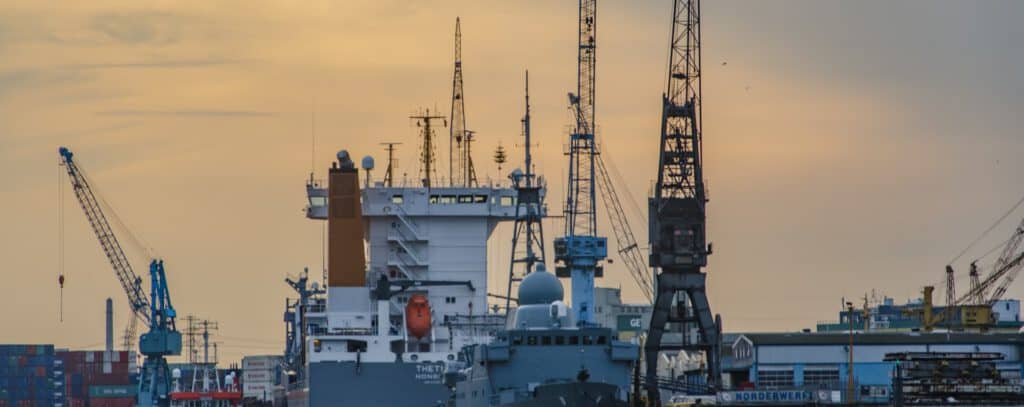DELTA-S

DELTA-S is for those seeking:
- the effects technological innovations, methodologies and tools, have on the organization of shipping companies both ashore and on-board ships.
- the role of human resources, on-board and ashore, and the skills and knowledge needed for supporting the companies’ strategic direction in the new competitive landscape.
- in exploring the key drivers of the Enriched Business Paradigm of shipping management companies.
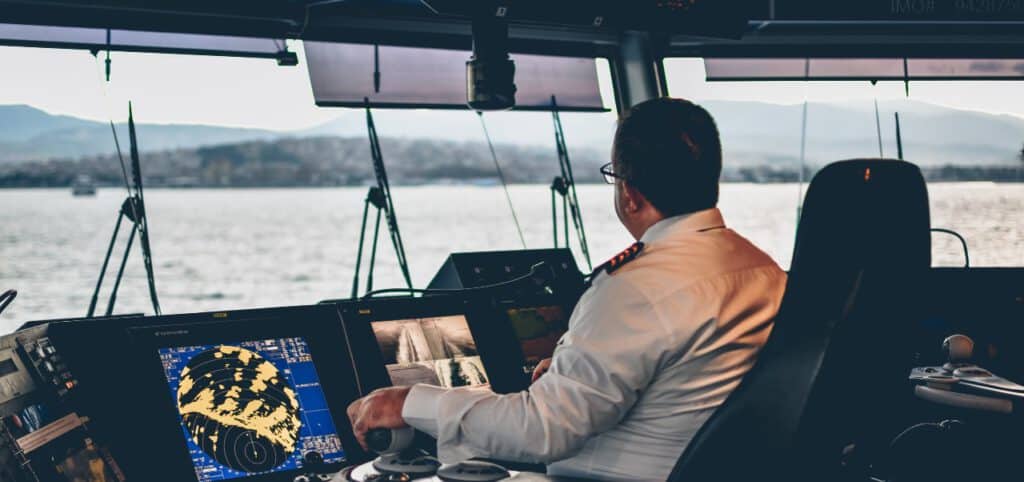
The transportation industry, is traditionally expected by shippers to readily adapt to market capacity requirements. The maritime industry especially, has traditionally suffered from dynamic changes in demand, where those having the most resilient systems in place survive over time. Differentiation strategies have been applied by various operators via expanding their business portfolios in niche markets achieving higher margins for a period of time. These strategies are aligned with business models applying cost based and asset play strategies, with the latter taking advantage of the maritime cycles. Nevertheless, the modern dynamic business environment, where shipper supply chains are rather extended and rely on reliable transportation, demand for a change in the business philosophy and models the maritime industry applies. In this new model, relationships with customers and suppliers along with human capital development and available technology are key to its success.
Given the fact that limited academic work exists on the business models shipping management companies follow, the present effort aims at furthering existing research on such models to achieve the next competitive advantage. This effort, is based on three main pillars namely; strategic direction of the company, human resource development and digital business capabilities. This work envisions to conceptualize and develop an enriched Business Model for the industry based on future needs and in parallel identify employee skills and other resources needed for its success. This new knowledge is expected to assist the Greek Shipping Industry to remain competitive in the global business environment and the Greek maritime cluster to increase its attractiveness through the new digital mind-set. Finally, the identification and development of digital tools and skills for the enforcement of the local work force will create new job opportunities and facilitate the provision of services of the highest calibre.
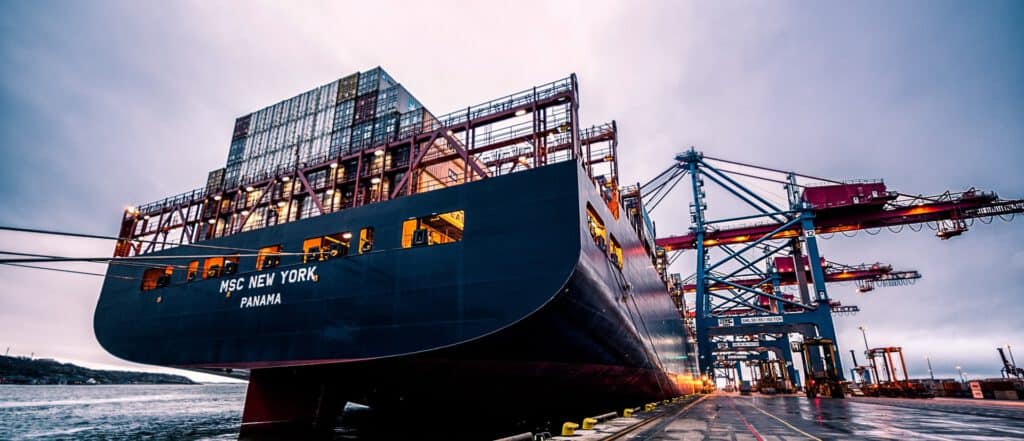
DELTA-S aspires to create knowledge useful for shipping management companies, which will increase their internal integration and external adaptation, assisting them to remain competitive in the dynamic digital global business environment. The Greek maritime cluster is expected to increase its attractiveness through the new digital mind-set resulting in new business opportunities and creation of highly skilled jobs.
The new business environment increases the need for the maritime industry to shift from the traditional model of selling capacity to a model, which will offer higher value to the users. Until today capacity is dealt as a commodity and like any commodity when demand is high revenues increase and vice-versa. The fact that demand dynamics move at a much faster pace compared to those of supply, makes the industry vulnerable to revenue fluctuations from an operating perspective (Stopford, 1997). The changes in the external environment bring into fore factors not considered as important under the existing business paradigms. Enriching these business models, especially for those companies active in the traditional bulk shipping markets, via introducing an Enriched Business Paradigm, which will take into account several of the factors that are currently neglected, is the challenge for the DELTA-S. These factors are grouped under the below three pillar (Figure 1).
Figure 1: Next Competitive Advantage Pillars
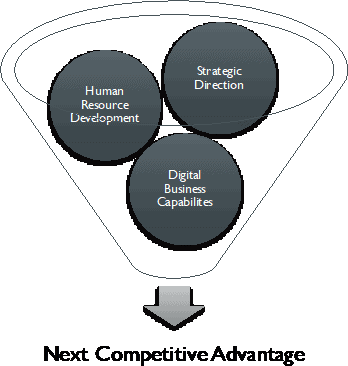
Source: Authors
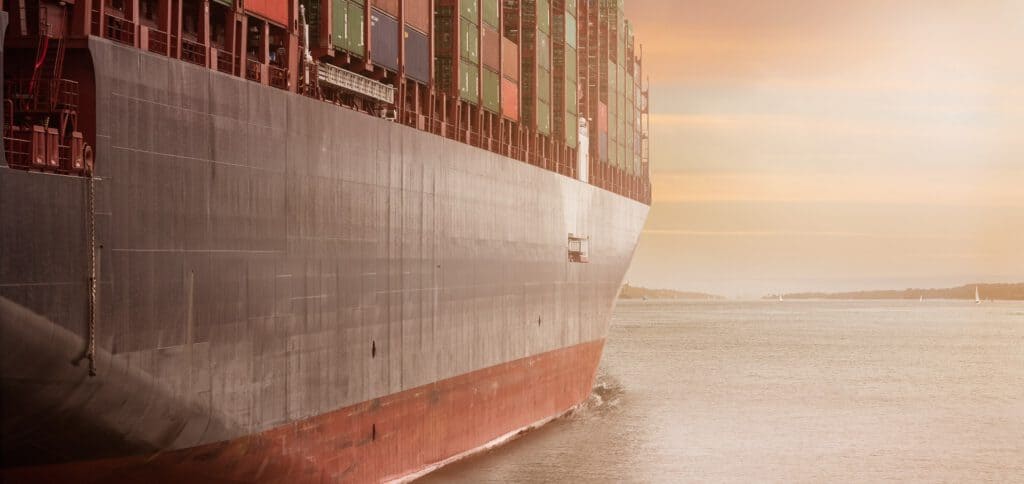
DELTA-S goal will be achieved via the accomplishment of goals among the many:
- Analysis of the effects of technological innovations, methodologies and tools, in the organization of shipping companies both ashore and on-board ships.
- Analysis of the aforementioned in the supply chain context and in the role of shipping companies within it.
- Analysis of the role human resources, on-board and ashore, and the skills and knowledge needed for supporting the companies’ strategic direction in the new competitive landscape.
- Enrich the knowledge on shipping companies’ operations and the way these need to support business strategies.
The aforementioned will be achieved via a number of objectives with actionable results, which are expected to have a spill over effect. Among the results are:
- The project will be implemented in two pillars, each one leading to a PhD thesis.
- The first pillar will focus on the conceptualization and development of resilient Business Models based on the future needs of the industry.
- The second pillar will examine the management of human resources in need to serve the new enriched business models.
- Publications presented in international conferences and published in high quality academic journals will be used for the dissemination of this work.
- Workshops for the dissemination of the results at academic and industry level.
- Development of stand-alone methodologies and tools.
For Academia
The present research aims at furthering existing state of the work related to the competitive advantage of the maritime industry. So far models and frameworks encapsulated in various studies take a single-dimension approach focusing on traditional management tools and techniques. With the use of modern available technology tools, this work aims at shedding light to an alternative and differentiated way of thinking with actionable insights when it comes to human capital development and business models leading to effective decision making. Via a number of publications to conferences and academic journals the results will be disseminated to academia.
For Industry
The outcome of this work aims at providing valuable insights on how the industry and more specifically shipping management companies should operate under a more than ever dynamic environment where data acquisition, quality and analysis are key to the next competitive advantage. With the development of methodologies in relation to problem solving and software tools for swift decision making at strategic and business level industry players of the maritime cluster will be facilitated in improving productivity and competitiveness levels. Greek Shipping Management Companies will be at the focus of this research and is expected to be the main beneficiaries of the findings.
For Society
Improving the Greek maritime cluster competitiveness, via the development of skilful work force and the existence or creation of new competitive organizations, acts as an enabler to the community and economy. The new knowledge created via this work will assist in improving Greek-owned shipping companies’ abilities to adjust and improve their competitiveness. This will contribute to increasing further the attractiveness of the Greek maritime cluster globally creating new job and business opportunities for people and organizations.
DELTA-S Research Team
Dr. Ioannis Theotokas
Dr. Ioannis Lagoudis
Mr. George Georgoulis
Ms. Konstantina Raftopoulou (2021-2022)
Dr. Athina Syntychaki (2022-2023)
Mr. John Prosilias (2022-2023)
Mr. Orfeas Tsikourakis (2022-2023)
Dr. Ioannis Theotokas
Principal Investigator
Dr. Ioannis Theotokas is Professor of Shipping Management. He has a background of economics and has specialized in Shipping Management. He received his PhD from the University of Piraeus (1997). His research interests lie in the fields of Management, Human Resource Management and Strategic Management applied to shipping business.
He is the author of seven books (with five as co-author) published in Greece and the UK and of 43 papers published in international journals and in edited books. He has presented over 60 papers at international scientific conferences. He is member of International Association of Maritime Economics and of the Association of Greek Maritime Economists.
He has participated as scientific coordinator or as principal researcher in research projects related to employment, entrepreneurship, strategy and competitiveness in shipping, to maritime training and e-learning, to image of shipping and in consultancy studies funded/commissioned by European Commission, Niarchos Foundation, Greek Ministry of Economic Development, Ceres Hellenic Shipping Enterprises S.A., Panhellenic Seamen’s Federation, Academy of Athens and other organisations (KNOWME, CAPTAINS, MELES, INNOSUTRA, RURAL eGOV, SLIM-VRT).
From September 2015 to February 2017 he had served as Secretary General of the Ministry of Maritime Affairs and Insular Policy of Greece and from April 2015 to September 2015 he had served as Deputy Secretary General of the Misinisry of Economy, Infrastructure, Maritime Afairs and Tourism. He has been the director of the Research in Shipping and Ports Laboratory of the University of the Aegean from 2009 to 2015.
Dr. Ioannis Lagoudis
Team Member
 Dr. Ioannis N. Lagoudis joint the Department of Maritime Studies of the University of Piraeus in December 2018. Prior to this appointment he served as faculty at the Department of Shipping Trade and Transport at the University of the Aegean and at the Malaysia Institute for Supply Chain Innovation part of MIT Global SCALE Network. He is Fulbright research scholar at the MIT – Center for Transportation and Logistics, where he is affiliated today. He has also been active in industry advising multinational companies and Government agencies in Asia, U.S.A. and Europe on maritime and supply chain related issues. Among the companies he has worked with are CSX, Starbucks, Petronas, Ralph Lauren and Johor Port Authority. His research interests lie in the areas of strategic management, maritime logistics, supply chain management and decision-making. He has published several papers in conferences and academic journals.
Dr. Ioannis N. Lagoudis joint the Department of Maritime Studies of the University of Piraeus in December 2018. Prior to this appointment he served as faculty at the Department of Shipping Trade and Transport at the University of the Aegean and at the Malaysia Institute for Supply Chain Innovation part of MIT Global SCALE Network. He is Fulbright research scholar at the MIT – Center for Transportation and Logistics, where he is affiliated today. He has also been active in industry advising multinational companies and Government agencies in Asia, U.S.A. and Europe on maritime and supply chain related issues. Among the companies he has worked with are CSX, Starbucks, Petronas, Ralph Lauren and Johor Port Authority. His research interests lie in the areas of strategic management, maritime logistics, supply chain management and decision-making. He has published several papers in conferences and academic journals.
Mr. George Georgoulis
 Team Member
Team Member
- Υποψήφιος διδάκτωρ με Θέμα διατριβής «Διαχείριση κινδύνου και ανθρώπινος παράγοντας στη ναυτιλία».
- ΜSc στη Ναυτιλία στις μεταφορές και το Εμπόριο.
- ΠΛΟΙΑΡΧΟΥ Α΄(αριστείο)
Ms. Konstantina Raftopoulou (2021-2022)
PhD Candidate
 Ms. Konstantina Raftopoulou is a Phd candidate in the department of Maritime Studies at the University of Piraeus, conducting research in the field of human resources management in shipping companies. The research interests of her Phd focus on the challenges posed by the new digitalized maritime environement in human resources management, both from a functional and an organizational perspective.
Ms. Konstantina Raftopoulou is a Phd candidate in the department of Maritime Studies at the University of Piraeus, conducting research in the field of human resources management in shipping companies. The research interests of her Phd focus on the challenges posed by the new digitalized maritime environement in human resources management, both from a functional and an organizational perspective.
She has received her undergraduate degree in International and European Economics from Athens University of Economics and Business, and holds a master’s degree in International Shipping, Finance and Management from the same University. Before engaging in research, she was working in the field of accounting and finance.
Dr. Athina Syntychaki (2022-2023)
 Dr. Athina Syntychaki received her PhD in Maritime Studies from the University of Piraeus. Her research interests lie in the field of management, human resources, cultural intelligence and organizational culture in shipping industry. She has extensive teaching and academic experience. She has participated in several international scientific conferences and seminars, while she has also published scientific articles in international journals. Currently she holds the position of Business & Market Research Executive at International Registries Inc (the Marshall Islands Registry). She received her Master of Science in International and European Studies from the University of Piraeus and Bachelor in Political Science.
Dr. Athina Syntychaki received her PhD in Maritime Studies from the University of Piraeus. Her research interests lie in the field of management, human resources, cultural intelligence and organizational culture in shipping industry. She has extensive teaching and academic experience. She has participated in several international scientific conferences and seminars, while she has also published scientific articles in international journals. Currently she holds the position of Business & Market Research Executive at International Registries Inc (the Marshall Islands Registry). She received her Master of Science in International and European Studies from the University of Piraeus and Bachelor in Political Science.
Mr. John Prosilias (2022-2023)
 Mr. John Prosilias has a background in Naval architecture and over 13 years of experience in a technical role. He held various positions as technical consultant dealing with ship’s structures, focusing on strength/stability calculations, new building plan approvals, hull conversions including hull repair reports and supervision on behalf of shipping companies. He currently holds the position of the Deputy Technical Manager at International Registries Inc., responsible for Safety and Technical Services Group, which supports the RMI Registry’s fleet of more than 5,200 vessels. Prior to joining the Marshall Islands Registry, Mr. Prosilias was employed by Korean Register (KR) since 2013, as Class surveyor assigned to existing ship class and statutory surveys, class approval of service providers and marine equipment certification, while he played an occasional role on business development within KR’s Greek market. He earned his Bachelor of Science degree in Naval Architecture from the University of Applied Sciences, GR and holds a Master’s degree in International Shipping, Finance and Management from Athens University of Economics and Business, GR.
Mr. John Prosilias has a background in Naval architecture and over 13 years of experience in a technical role. He held various positions as technical consultant dealing with ship’s structures, focusing on strength/stability calculations, new building plan approvals, hull conversions including hull repair reports and supervision on behalf of shipping companies. He currently holds the position of the Deputy Technical Manager at International Registries Inc., responsible for Safety and Technical Services Group, which supports the RMI Registry’s fleet of more than 5,200 vessels. Prior to joining the Marshall Islands Registry, Mr. Prosilias was employed by Korean Register (KR) since 2013, as Class surveyor assigned to existing ship class and statutory surveys, class approval of service providers and marine equipment certification, while he played an occasional role on business development within KR’s Greek market. He earned his Bachelor of Science degree in Naval Architecture from the University of Applied Sciences, GR and holds a Master’s degree in International Shipping, Finance and Management from Athens University of Economics and Business, GR.
Mr. Orfeas Tsikourakis (2022-2023)
 Experienced Supply Chain and Business Operations Specialist
Experienced Supply Chain and Business Operations Specialist
A graduate of the Maritime Studies Department of the University of Piraeus (2013-2017). He gained experience in the shipping industry having served as an Operator & Logistics Coordinator for a period of 5 years (2016-2021) in one of the most well-established companies in the port of Piraeus, Callitsis Group of Companies (est. 1905). In parallel, he obtained certifications in the field of Shipbroking, awarded by the Hellenic Shipbrokers Association (2019), ranking second in class. Through this achievement, he was granted a scholarship for the International Shipping, Management & Finance M.Sc. program at the Athens University of Economics and Business. Completed the program as the first in class and granted an Excellence Award by the Propeller Club of Piraeus (2022). The interest in digitalization and digital transformation urged him to pursue an opportunity as a Researcher for the University of Piraeus. Currently also he is serving as an Operations Specialist for a globally leading software company specializing in manufacturing operations and analytics in the Pharmaceutical industry.


